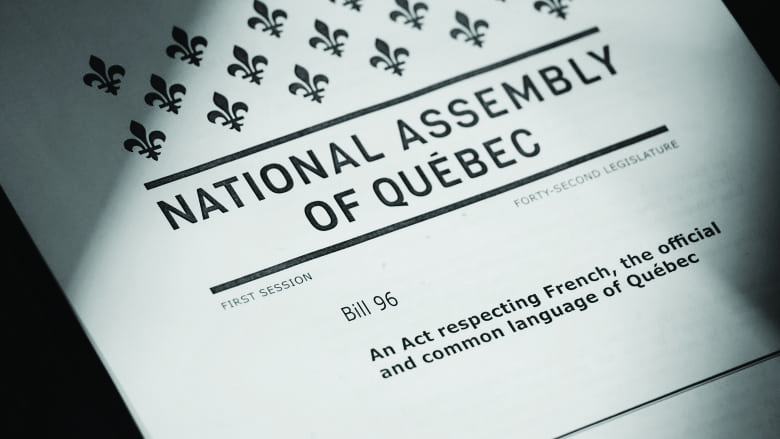In this week’s segment of Along Party Lines, The McGill Tribune looks into the stances of the major political parties regarding Bill 96 and Bill 21.
What are Bill 96 and Bill 21?
An Act respecting French, or Bill 96, was adopted in the National Assembly of Quebec on May 24. The bill introduces a set of amendments to the province’s Charter of the French Language, Bill 101, to further protect the use of the French language in Quebec. Under the legislation, the enrollment capacity for English-language CEGEPs will be limited to 17.5 per cent of the total provincial CEGEP population and access to English programs in French-language CEGEPs is restricted. The bill also decrees that immigrants can communicate with government agencies in a language other than French during their first six months in the province, after which public services will only be offered in French.
The government also invoked the notwithstanding clause when it ratified Bill 96. Under the notwithstanding clause, Parliament and provincial legislatures may exceptionally enact legislation that is in violation of certain sections of the Canadian Charter of Rights and Freedoms and safeguard it from legal challenges for five years. The clause is generally frowned upon, but the province also invoked it with Bill 21, an Act respecting the laicity of the State.
Bill 21 prohibits public service employees, including teachers and public defenders, from wearing religious symbols—hijabs, turbans, crucifixes, and jewellery, for example—in the workplace. Despite the bill taking effect in 2019, Bill 21 remains a controversial law in Quebec politics and has been criticized for disproportionately targeting religious minorities such as Muslim women.
Coalition Avenir Québec (CAQ)
Both Bill 96 and Bill 21 were adopted under the CAQ government led by Premier François Legault. Despite public opposition to the bills, Legault has remained an advocate of both and has vowed to continue protecting the French language.
Legault’s continued support of Bill 21 stems from his argument that secularism and religious freedom are not mutually exclusive. When Bloc Québécois leader Yves François Blanchet was asked about his support for Bill 96 and Bill 21 during a 2021 federal election debate, Legault was outraged by the moderator’s insinuation that the laws were racist and discriminatory. He defended the bills as exemplifying the “values of Quebec.”
Liberal Party of Quebec (PLQ)
Liberal leader Dominique Anglade has made it clear that her party is opposed to both bills.
A resolution was passed at the PLQ’s 40th youth wing convention on Aug. 6 to investigate the impositions Bill 96 places on anglophone and allophone students in English CEGEPs. If elected, Anglade’s government would exempt Indigenous peoples from Bill 96 and repeal the notwithstanding clause, the cap on English CEGEPs, and the six-month deadline imposed on newcomers to learn French.
Conservative Party of Québec (PCQ)
Éric Duhaime, the Conservative Party’s leader, opposes the new language laws. Although a francophone himself, Duhaime held a press conference—during which he spoke English and French—condemning the bill’s linguistic policies. He hopes to bridge the Anglo-Franco divide and recognizes bilingualism as an asset for the province, not a weakness. He plans to repeal Bill 96 if elected.
However, Duhaime is in favour of Bill 21, arguing the government and its officials should remain secular before the citizens of Quebec.
Québec solidaire (QS)
Despite proclaiming that language issues should not be at the forefront of the provincial campaign, spokesperson of Québec solidaire, Gabriel Nadeau-Dubois, voted in favour of Bill 96. Québec solidaire is critical of some of its provisions, including the six-month learning period for newcomers and the neglect of Indigenous languages. The party plans to reverse the six-month grace period for immigrants and to consult with Indigenous leaders to officially protect Indigenous languages in Quebec, if elected.
Nadeau-Dubois also promised to contest Bill 21 if Québec solidaire wins the majority.
Next week on Along Party Lines, The Tribune/will break down how these parties compare on Indigenous issues, separatism, and pan-Canadian relations.








